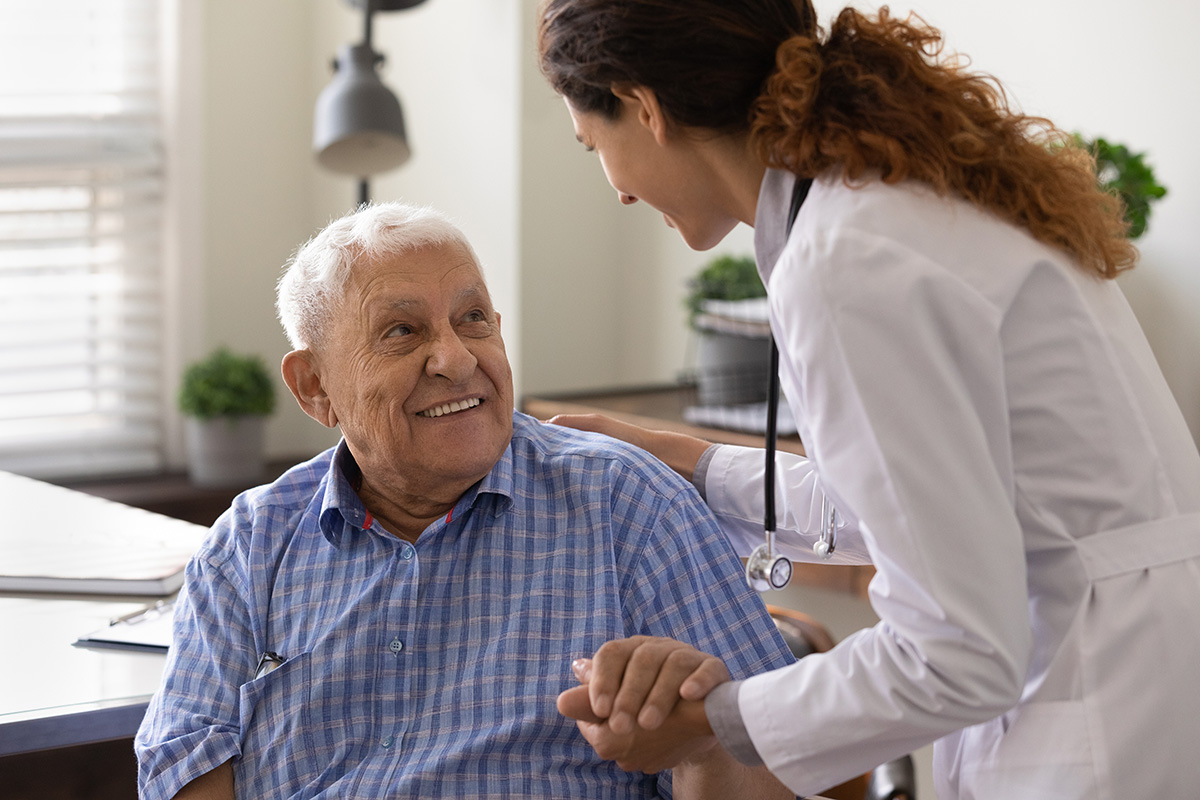Article by Jairo Ayala, Division of Emergency Preparedness and Response, Fairfax County Health Department
(Posted 2024 February)

 Emergencies affect individuals managing health conditions such as cancer very differently. Therefore, being prepared for emergencies is especially important.
Emergencies affect individuals managing health conditions such as cancer very differently. Therefore, being prepared for emergencies is especially important.
Preparedness for people with cancer includes taking measures to ensure your routine treatment is not interrupted. Here are a few tips to help you prepare and ensure your health and medical needs are met during emergencies.
Plan with your cancer team and healthcare providers.
It is important to have a plan to avoid any disruptions in your scheduled chemotherapy or radiation sessions. Make sure you discuss the options you have for receiving care during an emergency with your providers. This may include locating neighboring treatment centers if you are unable to physically access your usual treatment center or discussing alternate treatment options.
Know your health information.
You may need to evacuate during an emergency. Therefore, it is important to be informed about the specifics of your diagnosis in case you need to receive care elsewhere. This includes knowing your exact cancer type, cancer stage, medications you take, and where you are in your treatment plan. Make sure to keep a written list of all the medications you take as well as any important medical documents you may need.
Follow recommended safety guidelines and protect yourself from disaster-related infections.
Receiving cancer treatments like chemotherapy and radiation can weaken the immune system.
- Keep food and water safe during emergencies.
- Keep your skin clean and dry. Cover any cuts or wounds unless otherwise instructed by your cancer team or healthcare provider.
- Follow recommended guidance regarding the use of face coverings and social distancing.
- Avoid crowded areas and people who are sick or are experiencing symptoms.
- Wash your hands with soap and water frequently.
- Stay up to date on important vaccines like influenza (flu), COVID-19, Hepatitis A, Hepatitis B, pneumococcus, tetanus, and other common infections.
- Know the common symptoms of infections, such as cough, sore throat, and fever, and call your healthcare provider if you are experiencing these symptoms.
Build an emergency kit.
- Make sure to include an extra supply of all your chemotherapy medication and other meds —ideally enough for at least seven days. Include any medications or over the counter products that help you manage your chemotherapy or radiation side effects.
- Talk to your healthcare providers about the possibility of obtaining an extra supply of medications.
- Make sure you include extra sanitation supplies, such as masks, hand-sanitizer, gloves, soap and alcohol wipes, in your first aid kit.
Plan with your family.
Remember to share your emergency plan with family members, friends, neighbors, or anyone who you may need help from during an emergency.
Practice self-care.
Finally, make sure that you are taking care of yourself.
Ensure that you are engaging in basic self-care such as taking care of your physical, emotional, spiritual, and mental health. This can be as simple as practicing deep breathing, meditation, doing light exercise, limiting your exposure to media outlets, reaching out to loved ones, practicing mindfulness, helping others, or engaging in any stress-reduction techniques that work for you.
This article is part of the Golden Gazette monthly newsletter which covers a variety of topics and community news concerning older adults and caregivers in Fairfax County. Are you new to the Golden Gazette? Don’t miss out on future newsletters! Subscribe to get the electronic or free printed version mailed to you. Have a suggestion for a topic? Share it in an email or call 703-324-GOLD (4653).

